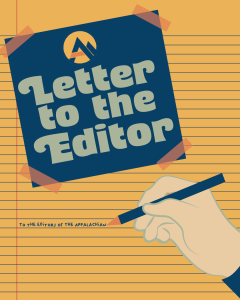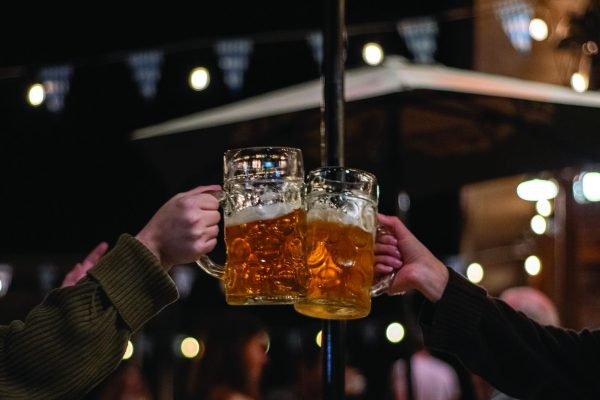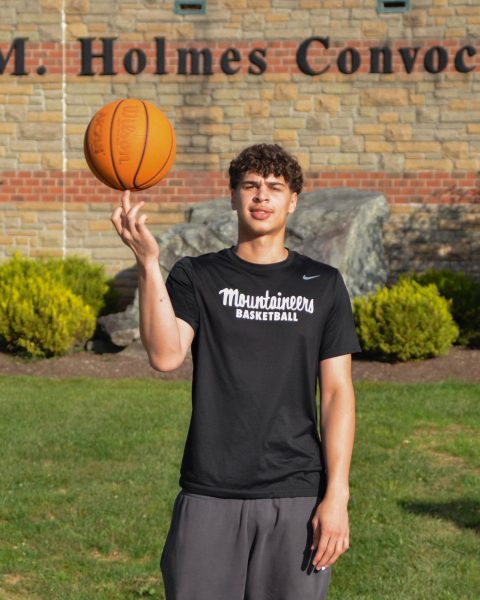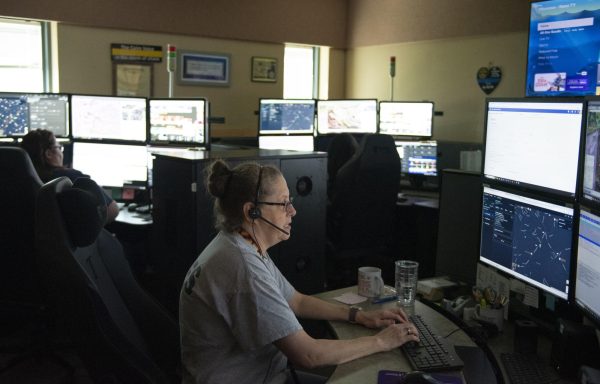Opinion: The entertainment industry is detrimental to COVID-19 recovery in the U.S.
March 19, 2021
Many schools, restaurants and other businesses have shut down due to COVID-19. While some Americans are losing jobs, others in the entertainment industry are doing just fine. From actors being allowed to participate in film making to NFL players participating in the sport, the U.S. has prioritized entertainment businesses even though people are dying from COVID-19 and losing their jobs.
Although there are precautionary measures set to protect the health of film staff during the making of a movie like wearing masks and testing for COVID-19, the actors obviously do not wear masks during the shooting of a scene and have to talk in close proximity to each other and touch the same surfaces on a set. Many film crews had to shut down due to positive COVID-19 outbreaks such as Olivia Wilde’s setup for her upcoming film “Don’t Worry Darling.” People should not be risking their lives for the sake of a film. A 2019 Motion Picture report shows that the global entertainment industry reached $101 billion, with about 268 million people attending movie theaters at least once. Money currently being spent on film projects could be used for health expenses and charity during this pandemic.
The COVID-19 pandemic has undoubtedly affected the entertainment industry but that does not mean Americans should waste money on the film market while other people can barely afford housing, one study from the Center on Budget and Policy Priorities finding that about 81 million adults struggle to pay housing fees. The entertainment industry should at least contribute some of its earnings to those in need considering many people are having a difficult time ever since COVID-19 hit.
According to a Statista report, America spent about $55.9 billion on sporting events in 2017. Of course, sports can be put to good use such as charity sporting events. However, during this pandemic with plummeting employment rates, it does not make much sense to allow sports teams to participate in public events where they are putting themselves and others at risk for the sake of entertainment.
Another Statista study found that the Miami Dolphins team in 2019, with the lowest annual player salary, had “average annual revenue of $2.05 million” while the Atlanta Falcons, with the highest annual player salary, had “an average of 4.71 million.” Even though the lowest income for a player was about $500,000 in 2019, that is still so much money, more than a doctor’s average annual income of around $313,000, based on a Medscape’s report. Doctors literally save lives and are incredibly essential during this pandemic. Money should be spent on helping doctors and providing health resources to the public rather than sport events where players could potentially contract COVID-19.
Another problem is politicians and celebrities not following COVID-19 protocol while also preaching about the severe risks people face when being unsafe during the pandemic. For example, California’s governor Gavin Newsom ate at a French restaurant in November of 2020, not following his own state’s guidelines. Celebrities, too, were seen attending parties during the pandemic, such as Kendall Jenner throwing a birthday halloween party last year with at least 50 people in attendance. It is ironic to see these same people make public statements about “wearing masks” and following COVID-19 guidelines. Seeing this hypocrisy sets a bad example for people who look up to these figures in the media. One dining at a restaurant during the pandemic without a mask on may seem like a small mistake to a few, but this could encourage people to mimic this behavior or think that it is okay to risk yourself and others.
We should be prioritizing the health industry and employment, especially low-income families in the U.S., rather than entertainment businesses. We will not recover well from this pandemic if we keep putting people at risk of contracting the virus. Politicians and other popular public figures should be strong role models for the public and themselves. If someone cannot follow what they preach, they should stop preaching it. People need to abide by the health guidelines no matter what status they are. We can have safer forms of entertainment in the future once recovering from the virus and its impact on the economy.












